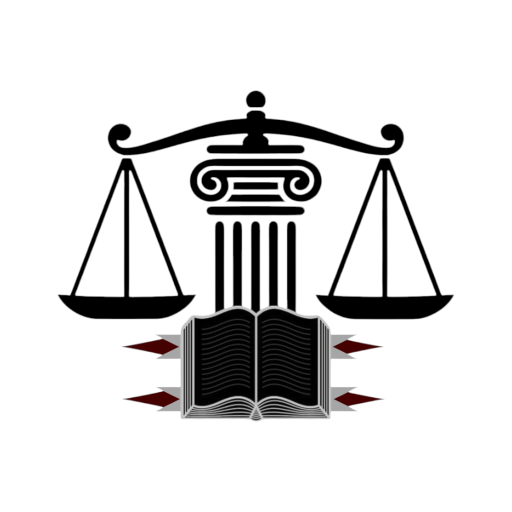Introduction
Even before its independence, Pakistan aimed to build strong ties with Islamic countries. After independence in 1947, Pakistan continued to strengthen these relations. A major step was the founding of the Organization of Islamic Cooperation (OIC) in 1969, an effort led by Pakistan and Saudi Arabia, showing Pakistan’s commitment to unity among Muslim nations.
Pakistan and Iran
Iran is Pakistan’s neighbor to the west, sharing a 900 km border. Both countries have deep cultural, religious, and trade ties.
-
Early Relations: Iran was the first country to recognize Pakistan in 1947, and diplomatic ties were quickly established.
-
Leadership Visits: Pakistan’s Prime Minister visited Iran in 1949, and the Shah of Iran visited Pakistan in 1950, strengthening trade and cooperation.
-
RCD (1964): Along with Turkey, Iran and Pakistan formed the Regional Cooperation for Development (RCD) to work together in trade, industry, and tourism. It was dissolved in 1979.
-
Support During Wars: Iran supported Pakistan during the 1965 and 1971 wars with India by providing economic and military aid.
-
Post-Revolution Relations: After Iran’s Islamic Revolution in 1979, Pakistan recognized the new government. Both countries continued improving their relations.
-
ECO (1985): Iran, Pakistan, and Turkey formed the Economic Cooperation Organization (ECO) to replace RCD and expand economic collaboration.
-
Trade and Energy Cooperation: Pakistan and Iran discussed technical and industrial cooperation. In 2000, President Musharraf visited Iran and supported a proposed gas pipeline project.
Pakistan and Afghanistan
Afghanistan and Pakistan share a long 2,252 km border, divided by the Durand Line. The two countries are connected through mountain passes like the Khyber Pass.
-
Improved Relations (1970s): Both countries signed agreements for regional security and non-interference.
-
Soviet Invasion (1979): Relations became tense when Soviet troops invaded Afghanistan. Pakistan hosted over 3 million Afghan refugees and supported Afghan resistance (Jihad).
-
Geneva Accord (1988): Pakistan played a diplomatic role in ending the Soviet occupation. The Soviet army withdrew in 1989.
-
Mujahideen and Taliban: Pakistan recognized the Mujahideen government in 1992 and later the Taliban when they took control of Afghanistan.
-
Joint Commission (2000): Both countries formed a commission to control refugee movement and stop drug smuggling.
-
Post-9/11: After the U.S. attack on Afghanistan in 2001, Pakistan supported the new pro-American government and continued diplomatic ties.
-
Gas Pipeline Project (2003): A project between Pakistan and Afghanistan was launched, showing a new era of cooperation.
Pakistan and Saudi Arabia
Pakistan and Saudi Arabia have always shared a special bond due to Islamic unity and the presence of holy sites in Saudi Arabia.
-
Early Support: Saudi Arabia supported the Pakistan Movement and was among the first to recognize Pakistan. The first agreement was signed in 1951.
-
Royal Visits: King Abdul Aziz visited Pakistan in 1954, and King Faisal visited in 1966, calling Pakistan his second home and providing economic aid.
-
Economic Help: Saudi Arabia helped install factories in Pakistan and supported the construction of Faisal Mosque. Pakistan assisted Saudi Arabia in modernizing its army.
-
Support During Wars: Saudi Arabia supported Pakistan in the 1965 and 1971 wars and on the Kashmir issue.
-
Shared Policies: Saudi Arabia backed Pakistan’s policies on Afghanistan. Pakistan supported Saudi Arabia during the 1991 Gulf War.
-
Economic Commission (1998): The Pak-Saudi Economic Commission launched 155 development projects in Pakistan.
-
Government Visits: General Musharraf and later the Prime Minister visited Saudi Arabia and signed several cooperation agreements, strengthening trust and friendship.
Pakistan and Bangladesh
Bangladesh was formerly East Pakistan until it became an independent country on 16 December 1971. The separation created tensions, but efforts were later made to improve relations.
-
Recognition and Diplomacy: Pakistan officially recognized Bangladesh in 1974 during the OIC Summit in Lahore. Prime Minister Bhutto met with Bangladeshi leadership to restore relations.
-
Early Challenges: Mujib-ur-Rehman’s government, influenced by India, demanded asset division and refused to accept liabilities, which delayed cordial relations.
-
Communication Links (1976): Agreements were signed to re-establish telephone and tele-printer connections. Banking and shipping delegations were exchanged.
-
Leadership Changes: Relations improved after General Zia-ur-Rehman became Bangladesh’s leader. He visited Pakistan and strengthened ties.
-
Joint Economic Commission (1979): Both countries agreed to meet annually to boost trade and economic cooperation.
-
Afghan Issue Support: Bangladesh supported Pakistan’s stance against the Soviet invasion of Afghanistan and helped organize an emergency meeting of Islamic countries.
-
Educational and Trade Cooperation: Both countries agreed to exchange students and fixed quotas in medical and engineering colleges. Trade negotiations included goods like jute, tea, and rice.
Conclusion
Pakistan has always given great importance to building strong and friendly relations with the Islamic world. Whether it is cultural, religious, economic, or political ties, Pakistan has worked to maintain unity and cooperation with Muslim countries. From helping during conflicts, supporting Muslim causes, and creating organizations like the OIC and ECO, Pakistan has played an active role in promoting solidarity among Islamic nations. Its relationships with countries like Iran, Afghanistan, Saudi Arabia, and Bangladesh reflect its commitment to mutual respect, development, and peace within the Islamic community.
